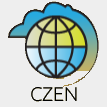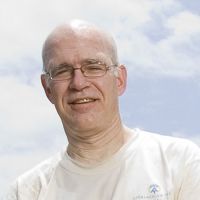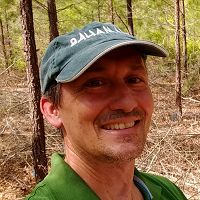OPPORTUNITIES
As a new CZO, a number of PhD-research and undergraduate opportunities are coming available. Please see PIs.
Cleaning out and renovating a historical weir, built in 1962.
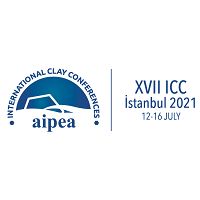
Sessions related to CZ Science at the 2021 International Clay Conference
27 Oct 2020 - The 17th International Clay Conference will be held July 12-16, 2021 in Istanbul, Turkey.
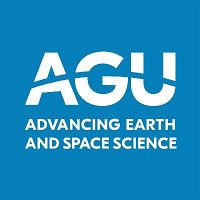
AGU 2020: Sessions related to CZ Science
06 Oct 2020 - A list of sessions related to CZ Science at the upcoming virtual AGU 2020 Fall Meeting.
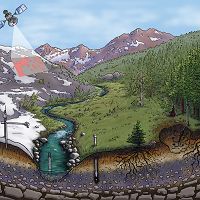
2020 CZO Webinar Series on Sustainability
17 Jun 2020 - For an updated listing of these talks, including abstracts, see /national/education-outreach/sustainability-2020/ The U.S....
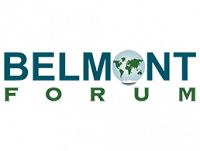
Belmont Forum Announces Collaborative Research Call on Soils
20 Apr 2020 - The Belmont Forum is pleased to announce the launch of a collaborative research call on the theme: Towards Sustainability of Soils and Groundwater...

CZOs at AGU 2019
19 Nov 2019 - A list of CZ-related sessions, abstracts and events at the 2019 AGU Fall Meeting.
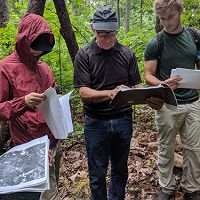
Graduate Student Critical Zone Reading Group Wraps the Semester with a Field Trip to Calhoun CZO
12 Jun 2019 - Five students travelled to Union, South Carolina for a two-day site visit June 6 – June 8 at the Calhoun CZO. This site visit was the...
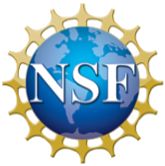
NSF solicitation: Dynamics of Integrated Socio-Environmental Systems (CNH2)
20 Nov 2018 - NSF Crosscutting CNH2: Dynamics of Integrated Socio-Environmental Systems (CNH2) Solicitation 19-528 DUE DATES Letter of Intent Deadline...
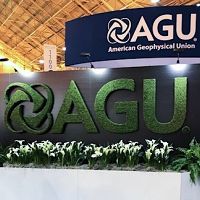
CZOs at AGU 2018
19 Nov 2018 - The 2018 AGU Fall Meeting will be held December 10-14 in Washington, D.C.

Undergraduate course curriculum, “Introduction to Critical Zone Science,” available free online
01 Jan 2018 - A 15-week semester-long upper-level undergraduate course curriculum entitled “Introduction to Critical Zone Science” is now available free online.
New opportunities for PhD students, postdocs, and undergrads
21 Jul 2014 - Contact the PIs at Duke, Georgia Tech, Mississippi State, Roanoke College, University of Georgia, University of Kansas, and the USFS Laboratory at...

Individual CZO observatories may have additional postings.
Use the above "move laterally" menu.
Opportunities are also posted in the CZO Email Newsletter and on Twitter.
MENTORING PLAN FOR POST-DOCTORAL FELLOWS
The CZO will involve four post-doctoral fellows, one at Duke University working directly with the PI Richter, one at University of Georgia working with the UGA lead Co-PI Markewitz, one at Georgia Institute of Technology working with lead Co-PI Wang, and one at Kansas University working with co-PI Billings. The PI and co-PI’s will serve as main supervisors and mentors of the post-doctoral fellows in their institution, but the interdisciplinary nature of the proposed project will also foster collaborations among all post-docs and PI’s. Post-doctoral mentoring is important to the success of projects that employ the post-doc, but also to the post-doc’s growth as a scientist and scholar. Reinforcing the importance of mentoring is the rising competition among qualified scientists for faculty hires and other permanent scientist positions. The goal of mentorship is to improve core research skills and productivity as part of the development of a professional scientist. The goal is to facilitate post-docs as independent, productive, and satisfied scientists.
Depending on the specific tasks of each institution, the post-doctoral fellows will experience a range of scientific activities that will expand their publication record and expertise in soil biogeochemistry, hydrology, and ecosystem ecology, including theoretical modeling, and experimental work. Post-docs will participate to all the PI meetings and help coordinate setup and installation of instrument and experiments, and be responsible for setting up the space-for-time plots at Calhoun. In addition to such opportunities to improve scientific proficiency, and in accordance with NSF guidelines, we describe additional activities that will comprise the post-doctoral mentoring plan. It should be noted that this post-doctoral funding request encompasses tasks needed to prepare the post-doctoral fellow for academic positions. The activities within the plan primarily center on a close collaboration among the research team. In particular, the above-mentioned activities will be:
- Career counseling: The PI’s will assist the post-doctoral fellows in crafting their research and teaching statements for job applications and advise them on how best to tailor their research and teaching skills to the various job requirements.
- Training in preparation of grant proposals: The PI’s have a policy of engaging all PhD students and post-docs in proposal writing, including preparation of research plans, crafting and refining research questions or hypotheses, literature review, and preliminary results. It is routine in the PI’s labs that students and post-docs read and review proposals initiated by the group.
- Conference presentations: As detailed in the budget, funding is requested for conference presentations. The post-doctoral fellows will be encouraged and helped to present their work at several conferences (including annual meetings of the American Geophysical Union, Geological Society of America, and Soil Science Society of America). The PI’s will be working with them on how to organize and run successful special-topics sessions on issues relevant for the Critical Zone.
- Guidance for improved teaching: The Graduate School at Duke University has a formal course in training TAs, where instructors provide feedback on lecturing styles. Moreover, there are numerous workshops sponsored by Duke University that introduce technology and innovations in the classroom. The project duration permits the post-doctoral fellows to take full advantage of these novel workshops – which are now open to post-docs as well. The other collaborating institutions will provide similar training for their post-doctoral fellows.
- Disciplinary technical training: The application of theoretical knowledge on soil biogeochemistry, hydrology, and more broadly critical zone dynamics is a unique opportunity to offer broader applications to previous experience. The post-doctoral fellows will be encouraged to interact with all members of the research team including social scientists and historians. Guidance and encouragement in effectively collaborating with researchers from diverse backgrounds and disciplinary areas will be provided. Opportunities for collaboration will come in field work and PI meetings.
- Training in responsible professional practices: Duke University requires that post-doctoral fellows complete Responsible Conduct in Research (RCR) training sessions. Moreover, since RCR does not train post-docs in project and grants management, the PI’s will ensure that these topics will be covered during the course of this project.
Contact Us
-
Lead-PI
Professor
.(JavaScript must be enabled to view this email address) 919 613 8031 -
Princeton
.(JavaScript must be enabled to view this email address) -
.(JavaScript must be enabled to view this email address) 919 613 8041 -
Data Manager, Field Manager
Duke
.(JavaScript must be enabled to view this email address) 919-613-8703
Explore Further
_640_480_80auto.jpg)
